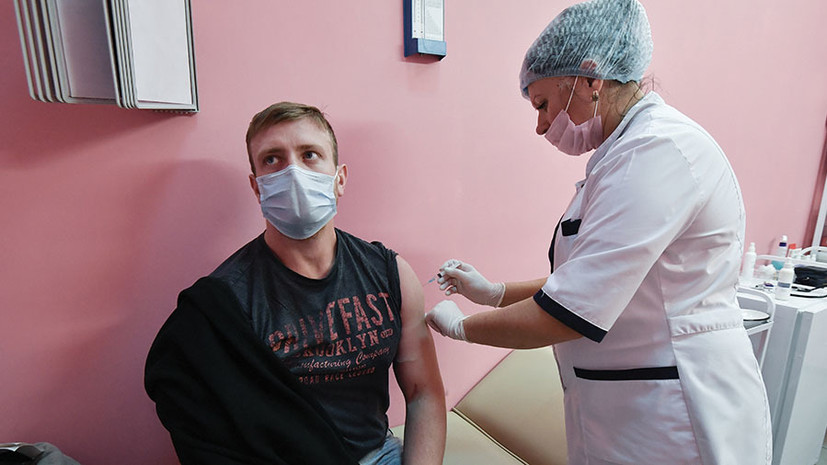The period of non-working days will not be extended if restrictive measures are observed.
"I hope that if all this (restrictive measures on COVID-19. -
RT
) is observed, it will be a short period of non-working days, after which we will start working again," Deputy Prime Minister Tatyana Golikova said at the labor forum and employment "The future of the world of work in Russia."
During her speech, she also recalled the instructions of President Vladimir Putin on the situation with COVID-19.
On October 25, the President of Russia approved instructions on the introduction of measures necessary to combat the spread of coronavirus infection.
In particular, the head of state ordered to ensure the provision of two days off for vaccination against COVID-19, to introduce self-isolation for the elderly and people with chronic diseases.
He also recommended limiting the work of catering establishments at night.
At the federal level, the non-working day regime was announced from October 30 to November 7.
At the same time, the heads of the constituent entities of the Russian Federation can establish additional non-working days.
So, in Moscow, this period will begin on October 28.
The total number of detected cases of COVID-19 in Russia since the beginning of the pandemic has reached 8,352,601. During this time, 7,242,735 people have recovered, 233,898 patients have died from complications that developed against the background of COVID-19 and concomitant diseases.
Over the past day, 36,582 new cases of coronavirus infection were recorded.
At the same time, 29,151 people were discharged after recovery, 1,123 died - this is a new maximum figure.
The largest number of new coronavirus episodes were recorded in Moscow (5789), St. Petersburg (2913), Moscow (2670) and Samara regions (1297).
Rospotrebnadzor reported that more than 206.3 million laboratory tests were carried out in the country for the presence of the virus.
More than 1.91 million people remain under medical supervision.
As the head of the laboratory of mechanisms of population variability of pathogenic microorganisms of the Center named after V.I.
Gamalei Vladimir Gushchin, in Russia there have been no deaths after vaccination against COVID-19.
At the same time, undesirable phenomena are isolated cases per "a million of vaccines supplied".
"In the Russian Federation, as a result of an acute reaction to the introduction of vaccination, no one has died yet," TASS quotes him.
He also cited the results of a study demonstrating that Sputnik V's protection against clinically significant covid is 83%, the protection against hospitalization is 90% and the protection against death is 95%.
According to him, we are talking about the "delta" strain and its daughter lines, which have been circulating in Moscow since June.
At the same time, the director of the Center.
Gamalei Alexander Gunzburg drew attention to the fact that "Sputnik V" also protects against a new variant of the "delta" strain, which received the designation AY.4.2 or VUI-21OCT-01.
"The Sputnik V vaccine is effective against all variants, none of the variants has become more epidemically significant than the original variant," RIA Novosti quoted him as saying.
On October 25, in Moscow and the Moscow region, three cases of the disease with the AY.4.2 mutation were detected.
Along with this, the head of the National Research Center for Epidemiology and Microbiology named after G Amalei expressed hope that a children's vaccine against coronavirus will be approved in the near future: “Experts are now working: a pharmacoexamination is being carried out.
I hope that soon there will be a positive decision on registration. "
On September 23, the Russian Ministry of Health announced the receipt of a package of documents for registration of a vaccine for the prevention of COVID-19 in adolescents "Gam-COVID-Vac-M" from the N.N.
Gamalei.
Vaccination
On Wednesday, October 27, the Russian Ministry of Health approved the simultaneous introduction of the Sputnik Light single-component vaccine and the influenza vaccine.
Changes have been made to the instructions for the drug.
"Interaction with a vaccine for the prevention of influenza has been studied in preclinical studies, it has been shown that there is no decrease in the immunogenicity of both the Sputnik Light vaccine and the influenza vaccine in the experiment when they are administered simultaneously," the text quoted by TASS says.
At the same time, it is still not allowed to mix Sputnik Light in one syringe with other vaccines or drugs.
In Russia, 53,511,786 people have already been vaccinated with the first component, 49,161,150 Russians have completed the full course of vaccination, and the herd immunity level is 45.7%.
Since March 2021, Roskomnadzor has deleted or blocked 3,816 resources with information on the sale of fake vaccination certificates, as well as generating fake QR codes.
“In March - 24;
in April - 66;
in May - 36;
in June - 83;
in July - 1353;
in August - 1148;
in September - 658;
in October - 448, ”the message says.
On the eve of the country's chief sanitary doctor, Anna Popova, announced that compulsory vaccination for certain categories of citizens has been introduced in all regions.
Five vaccines against coronavirus have been registered in Russia: Sputnik V and Sputnik Light, developed by the N.F.
Gamalei, "EpiVacCorona" and "EpiVacCorona-N" of the State Scientific Center of Virology and Biotechnology "Vector", as well as "KoviVak" from the Federal Scientific Center for Research and Development of Immunobiological Preparations named after M.P.
Chumakov RAS.

